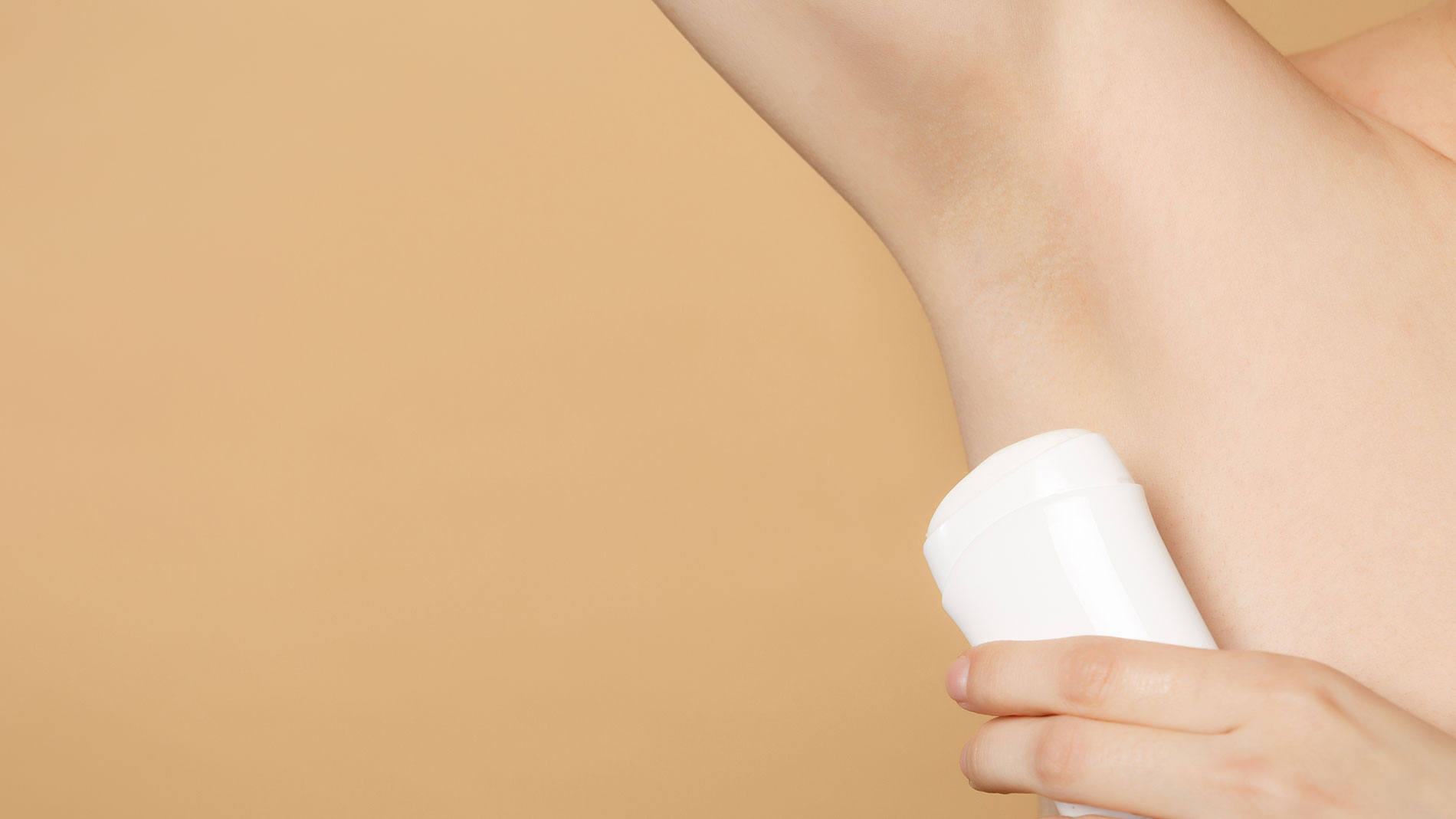By Dr Davin Lim
Cutis Dermatology
Dermatologist, Brisbane
How to get rid of body odor; Davin’s Tips.
Here are my favourite go to tips on treating body odour:
- Deodorants: if you sweat excessively the use of both antiperspirants & deodorants can help. No More Sweat & Rexona Sport are my favs.
- Antibacterial washes & diet can help a minority of patients.
- miraDry is an excellent permanent solution.
- Anti-sweat injections can help with sweating associated with BO.
- Some natural remedies (read below) may give you marginal gains.
What causes BO?
Body odour is caused by bacteria breaking down sweat on the skin. The sweat produced by the apocrine glands, which are found mainly in the armpits and groin, contains proteins and lipids that bacteria can feed on. When the bacteria break down these compounds, they produce compounds with a strong and characteristic smell. Additionally, certain foods, medications and medical conditions can also cause BO.
What treatments are there for body odour?
There are several treatment options available for body odour (BO), which include:
- miraDry: is the very latest electromagnetic device that destroys apocrine glands in the armpit area. These glands are responsible for BO.
- Antiperspirants: Antiperspirants, which contain aluminium compounds, can help reduce sweating and control odour. They are available over-the-counter and can be found in roll-on, stick or spray forms.
- Topical Antibiotics: Topical antibiotics such as clindamycin can help reduce the bacteria on the skin that cause BO. These are available by prescription and can be applied directly to the affected area.
- Topical Antifungals: Topical antifungals such as terbinafine can help reduce the fungus on the skin that causes body odour. These are available by prescription and can be applied directly to the affected area.
- Oral Antibiotics: In some cases, oral antibiotics may be prescribed to help reduce the bacteria on the skin that cause BO.
- Anti-sweat injections: a medication that is also used off-label to treat excessive sweating (hyperhidrosis), which is one of the main causes of bad smells.
- Iontophoresis: Iontophoresis is a procedure that uses a mild electrical current to reduce sweating. It can be effective in treating hyperhidrosis and BO.
- Surgery: Surgery is not a common treatment for BO and it is usually considered as a last resort option. However, there are a few surgical procedures that can be used to treat excessive sweating (hyperhidrosis) which is one of the main causes of body odour. These include Endoscopic thoracic sympathectomy, Liposuction and Surgical excision.
It’s important to note that what works for one person may not work for another, and it may take some experimentation to find the best treatment. It’s also important to consult a dermatologist for the best solution for you.
What is miraDry for excessive sweating and BO?
MiraDry is a non-invasive procedure that uses microwave energy to reduce sweating and eliminate odour-causing bacteria in the armpits. It is a treatment option for excessive sweating (hyperhidrosis) and BO. The procedure is typically performed in a dermatologist clinic and it can be done in one or two sessions.
During the procedure, a special device that delivers microwave energy is placed on the skin of the armpits. The heat energy is delivered to the sweat glands and apocrine glands (responsible for BO). This causes them to shrink and reduces the amount of sweat and smell that they produce. At the same time, the heat also kills the bacteria that causes BO. The procedure is performed under local anaesthesia, and there is minimal discomfort.
MiraDry is a long-lasting treatment, with a high success rate in reducing sweating and smell.. Its effects are usually permanent, although in some cases, a maintenance treatment may be needed. It is a FDA/TGA -approved procedure for primary axillary hyperhidrosis (excessive sweating of the underarms)
It’s worth noting that MiraDry is not a cure for all causes of excessive sweating, and it is primarily used for people with hyperhidrosis which is excessive sweating without an underlying medical condition. It’s also important to consult a board-certified dermatologist to determine if MiraDry is appropriate for you.
What is the best deodorant to use for BO?
The best deodorant for BO will depend on the individual and their specific needs. Some options that are commonly recommended for odour include:
- Antiperspirant: Antiperspirants contain aluminium compounds that can help reduce sweating and control BO. They are available over-the-counter and can be found in roll-on, stick or spray forms.
- Natural deodorants: These deodorants are made from natural ingredients, such as baking soda, coconut oil, and cornstarch, and are free from harsh chemicals. They can be effective in controlling body odour but may need more frequent application.
- Clinical strength deodorants: These deodorants are available over-the-counter and contain higher levels of active ingredients than regular deodorants. They are specifically formulated to control excessive sweating and BO.
- Prescription antiperspirants: These antiperspirants contain higher levels of aluminium compounds and are available by prescription. They can be used for people with excessive sweating (hyperhidrosis) and odour that do not respond to over-the-counter products.
It’s worth noting that what works for one person may not work for another, and it may take some experimentation to find the best deodorant for you. It’s also important to pay attention to the ingredients in the product you are using and consider any allergies or sensitivities you may have.
What is the difference between antiperspirants and deodorants and which is better for BO?
Deodorant and antiperspirant are two different types of products that are used to control body odour and sweating.
Deodorant is a product that is designed to control BO caused by bacteria. It typically contains antimicrobial agents such as triclosan, which can kill bacteria and neutralise smells. Deodorants are available in a variety of forms, including sprays, roll-ons, and sticks.
Antiperspirant, on the other hand, is a product that is designed to control sweating. It typically contains aluminium compounds, such as aluminium chloride, which can temporarily plug the sweat ducts, reducing the amount of sweat that is produced. Antiperspirants are available in a variety of forms, including sprays, roll-ons, and sticks.
Most deodorants on the market today are also antiperspirants, as they contain a combination of ingredients that target both smell and sweat.
In summary, deodorants work by neutralising BO, whereas antiperspirants work by reducing sweating. They can be used separately or together in one product, and they are available in different forms such as sprays, roll-ons, and sticks.
How do anti-sweat injections work for BO?
While it is not approved by the TGA specifically to treat body odour, some dermatologists may use it off-label to treat excessive sweating, known as hyperhidrosis, in areas such as the armpits, which is one of the main areas where BO originates from.
When injected into the armpit, anti-sweat injections blocks the signals from the nerves that stimulate the sweat glands, which reduces the amount of sweat produced. This can help reduce body odour caused by excessive sweating.
However, it is important to note that anti-sweat injections is not a permanent solution for BO. The effects of the treatment typically last for about six months, after which the sweat glands will return to their normal activity, and BO will return as well. Repeat treatments will be necessary to maintain the desired effect.
Also, it’s worth mentioning that anti-sweat injections is not the only treatment option for hyperhidrosis and body odour. Other options include antiperspirants, topical medications and iontophoresis (a procedure that uses a mild electrical current to reduce sweating). Consultation with a dermatologist is important to determine which treatment option is best for you.
What foods should I avoid if I have BO?
Certain foods can contribute to body odour by altering the chemical composition of sweat. Examples of foods that may cause body odour include:
- Spicy or strong-smelling foods, such as garlic and onions, which can be excreted through the skin and cause an odour.
- Caffeine and alcohol, which can increase sweating and make body odour stronger.
- Red meat, which can increase the production of sweat and sebum, the oily substance produced by the skin.
- Fish, which can cause a fishy odour due to the breakdown of trimethylamine in the body.
- Dairy products, which can cause an odour due to the breakdown of lactose in the body.
It’s worth noting that different people may have different reactions to different foods, and what causes BO for one person may not have the same effect on another. It’s also important to note that a balanced diet is important for overall health and wellbeing.
What are natural treatments for body odour?
There are several natural remedies that can help reduce BO:
- Apple cider vinegar: Mixing equal parts water and apple cider vinegar can create a solution to be used as a natural deodorant. The acidity of the vinegar can help kill bacteria that cause body odour. Strong solutions may give a chemical burn, so be careful.
- Baking soda: Baking soda can be used as a natural deodorant by mixing a small amount with water to create a paste. It can help neutralise odours and absorb moisture.
- Tea tree oil: This oil has antifungal and antimicrobial properties that can help reduce body odour caused by bacteria and fungus. It can be mixed with coconut oil or aloe vera gel to be used as a natural deodorant. Dermatologists hate this recipe.
- Witch Hazel: This natural astringent can be used as a natural deodorant by applying it directly to the skin.
- Lemon Juice: The acidity in lemon juice can help kill bacteria and neutralise odours. You can apply lemon juice directly to the skin or mix it with water to use as a natural deodorant. This can lead to UV associated dermatitis, so you have been warned.
- Herbs: Certain herbs, such as rosemary, sage, and thyme, contain natural compounds that can help reduce BO. You can make tea with these herbs and use it as a natural deodorant by applying it to the skin or adding it to your bath. Fuzzy, fluffy, harmless.
- Proper Hygiene: Showering regularly, using soap, and washing your clothes frequently can help keep bacteria at bay and prevent BO.
It’s worth noting that some of these remedies may work better for some people than others. It’s important to find what works best for you, and to consult a healthcare professional if you have any concerns or if your body odour persists despite trying natural remedies.
What surgical treatments are there?
Surgery is not a common treatment for BO and it is usually considered as a last resort option. However, there are a few surgical procedures that can be used to treat excessive sweating (hyperhidrosis) which is one of the main causes of body odour. These procedures include:
- Endoscopic thoracic sympathectomy (ETS): This is a procedure that involves cutting or clipping the sympathetic nerves that control sweating in the armpits. This can significantly reduce sweating and odour in the armpits.
- Liposuction: Liposuction is a procedure that involves removing fat from under the skin. It can be used to remove sweat glands in the armpit, which can reduce sweating and BO.
- Surgical excision: This procedure involves cutting out and removing the sweat glands from the armpit. This can significantly reduce sweating and body odor.
It’s worth noting that these surgical procedures can have some risks and side effects, and should only be considered after other options have been exhausted. It’s also important to consult a specialist such as a plastic surgeon or a thoracic surgeon to determine if surgery is appropriate for you.
Additionally, these procedures are not a permanent solution, and odour can return if other causes such as bacteria, fungal or hormonal issues are not addressed.
What is RF and can it reduce body odour?
Radiofrequency (RF) therapy is a non-invasive procedure that uses heat energy to treat excessive sweating. The procedure takes about 30 minutes to an hour to complete.
During the procedure, a special device that delivers radiofrequency energy is placed on the skin of the affected area, such as the armpits. The heat energy is delivered to the sweat and apocrine glands, which causes them to shrink. This reduces the amount of sweat that they produce and thus reduces excessive sweating, whilst destruction of the apocrine glands reduces BO.
The procedure is performed under local anaesthesia, and there is minimal discomfort. The procedure can be done in one or two sessions. The effects of RF treatment for excessive sweating are usually long-lasting and permanent, although in some cases, a maintenance treatment may be needed.
It’s important to note that RF therapy is not a cure for all causes of excessive sweating, and it is primarily used for people with hyperhidrosis which is excessive sweating without an underlying medical condition.
Of final note; this is not my preferred therapy for BO as other treatments such as miraDry are much better. RF is best for targeted treatments of focal areas (small areas) that may require further treatment. Discuss this option with your dermatologist.
What is iontophoresis and is it effective in treating BO?
Iontophoresis is a procedure that uses a mild electrical current to reduce sweating. It is a non-invasive treatment option for excessive sweating (hyperhidrosis) and BO. The procedure is typically performed by a trained healthcare professional, and it can be done on areas such as the armpits, hands, feet, and face.
During the procedure, a special device is used to deliver a mild electrical current through water to the affected area. The current causes the sweat glands to produce less sweat, which can significantly reduce sweating and BO.
Iontophoresis treatments are usually done in a series of sessions, usually 2-3 times a week for about 20-30 minutes each, until the desired level of sweating is achieved. The effects of the treatment can last for several weeks, and maintenance treatments may be needed to keep the sweat glands suppressed.
It’s worth noting that Iontophoresis is a safe and effective treatment option for excessive sweating and BO, but it may not be suitable for everyone. It is not recommended for people with heart conditions or pacemakers, pregnant women, or people with metal implants. It’s also important to consult a board-certified dermatologist to determine if Iontophoresis is appropriate for you. Note; I don’t perform this treatment anymore. For Brisbane patients, see Emily Fenton nurse practitioner in the Bayside area.


